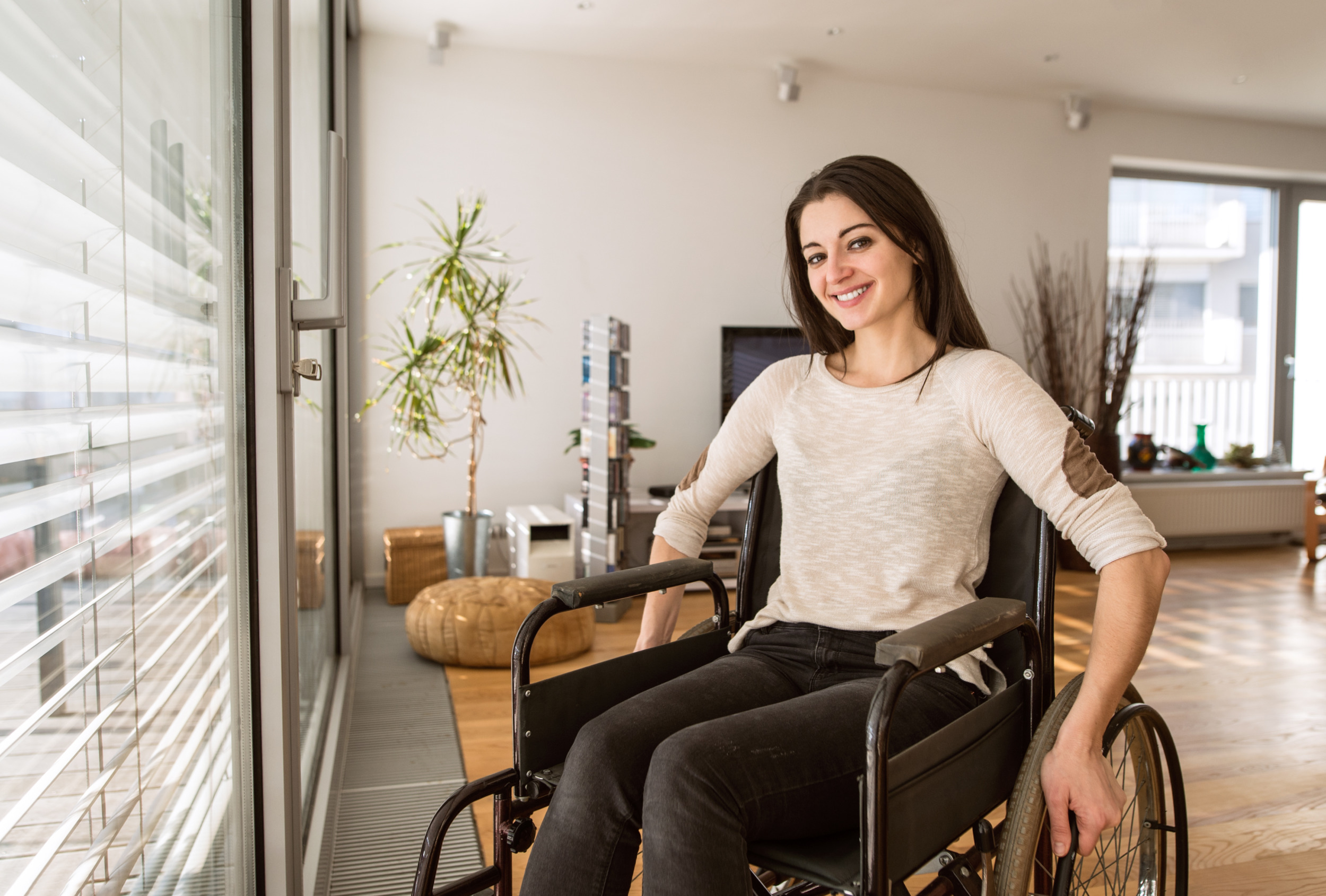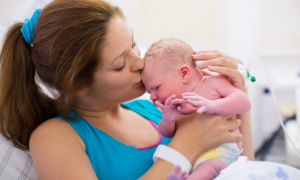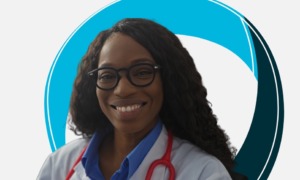Random sounds can trigger migraines, lasting for weeks sometimes, in college freshman Jemma-Tiffany Rosewater, 18, who has hyperacusis, a rare auditory disorder.
 When the Silver Spring, Maryland, college student developed a yeast infection, Rosewater’s mother ensured that her daughter made it through a gynecological exam without a glitch that might provoke one of those severe headaches.
When the Silver Spring, Maryland, college student developed a yeast infection, Rosewater’s mother ensured that her daughter made it through a gynecological exam without a glitch that might provoke one of those severe headaches.
“My mom has a contact who tries to schedule me as the first or last appointment of the day while there are less patients,” said Rosewater, who’s enrolled in online courses at Open College of Arts. “And the staff removes the crinkly paper off the exam table for me.”
Jill King, 21, has health insurance and can afford the cab ride to her physician’s office, which is five miles from her home in rural Statesboro, Georgia, in an area where she can’t safely walk. Having the means to get to the doctor’s office and have her cost covered, said King, who is blind, gives her independence and access that eludes many other disabled women.
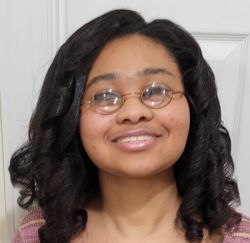
Courtesy of Jemma-Tiffany Rosewater
Jemma-Tiffany Rosewater
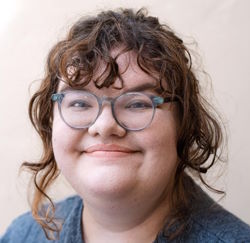
Courtesy of Jill King
Jill King
“There are a handful of OB/GYN practices in my area,” King said. “But, you know, if you’re low-income or don’t have insurance coverage, they’re not accessible. So you’re going to have to go to Planned Parenthood in Savannah.” That clinic, whose sliding-scale fees are based on a patient’s income, is 60 miles away from Statesboro.
From pending congressional legislation to ramped up research and medical guidance, several efforts aimed at narrowing the gaps in reproductive health care for disabled teens and young women are underway. They take aim at such barriers as exam rooms that are not configured or equipped to accommodate those with disabilities; lack of American Sign Language interpreters; even presumptions that women with disabilities don’t have the right to be sexually active or to bear children. Those women often have pregnancies that are more difficult and fewer healthy babies than women without disabilities; and they are more likely to experience premature delivery, gestational diabetes and preeclampsia, according to a 2011 JAMA study.
“Across the board, women with disabilities are at a disadvantage because of different types of barriers: communication barriers, physical access barriers or the attitudes of the staff,” said Monika Mitra, director of the Lurie Institute for Disability Policy at Brandeis University.
The logistics of accessing care
Women with conditions causing bodily spasms or rigidness, for example, often have difficulty positioning themselves on a conventional gynecological exam table with their legs in stirrups. Those tables may not be low enough for the patient to easily slide onto them. Women with intellectual disabilities may not fully understand verbal commands or other cues from clinicians or other medical personnel.
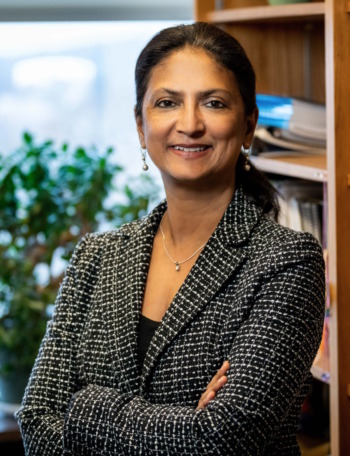
Courtesy of Monika Mitra
Monika Mitra, director of the Lurie Institute for Disability Policy at Brandeis University.
Beyond that, said UCLA School of Nursing’s Lauren Clark, “As much as we’re challenged with physical accessibility, we sometimes don’t think about other kinds of accessibility.”
Clark, the associate dean of academic programs, noted, for example, a woman cited in an analysis presented at the Society for Applied Anthropology annual meeting in 2022. Her hypersensitivity to touch, smell and other sensory stimulation that are symptoms of the woman’s autism made a gynecological exam painful and frightening. Compounding that discomfort was her lack of understanding of human sexuality and anatomy. She had received no reproductive health education.
That same woman likened her gynecological exam to a “‘sensory storm’ that resulted in ‘a lot of pain’,” said Clark, a health-disparities researcher. “ … It took her years to understand why her experience was uniquely painful and disturbing and to link the sensory defensiveness to her autism experience.”
Ultimately, that woman found ways to cope with having her genitals examined. Also, Clark said, “After a single, disastrous encounter with tampons, she switched to adult incontinence products to reduce the genital and olfactory sensory stimulation that was so painful and overwhelming.”
Clark continued: “As caring and thoughtful as providers are, they may not have all they need to understand around a variety of other accessibility issues.”
Fewer parental rights and other choices
“In the United States and beyond we know that, historically, disabled people have been restricted from making their own choices about [things like] starting a family,” said Brandeis’ Mitra, who teaches disability policy.
She co-authored a Yale Law and Policy Review analysis of more than 2,000 cases where women with disabilities lost their parental rights. Those researchers recommended that attorneys and judges be better trained in Americans With Disabilities Act protections for those parents. Authors of the Yale Law analysis, published in 2020, wrote that the ADA “was rarely raised, indicating possible failures by both trial and appellate attorneys. Specifically, it is unclear if the limited discussion of the ADA in appeals decisions reflect trial attorneys not previously raising the ADA, appellate attorneys failing to pursue it, or a combination of both. It is even more troubling that the ADA was seldom applied, suggesting that both judges and attorneys are misinformed about the law’s purpose in these cases.”
The Yale Law Review analysis also cited forced sterilizations of disabled women.
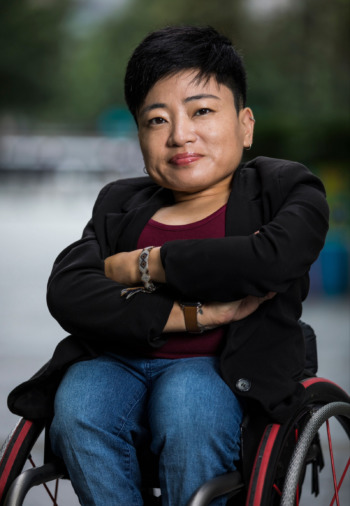
Courtesy of Mia Ives-Rublee
Mia Ives-Rublee, director of the Disability Justice Initiative at the Center for American Progress.
“We can look at things like self-determination, being able to decide for yourself … whether you want to have sex and explore that, whether you want to use birth control, if you want to go through sterilization,” said Mia Ives-Rublee, director of the Disability Justice Initiative at the Center for American Progress. “All of those are things that are often determined by an individual. But when you have a disability, it becomes more complicated.”
SOME SEE SIGNS OF PROGRESS
But things are starting to change, said Hilary Brown, assistant professor at the University of Toronto School of Public Health.
“We see an increasing focus on equity and diversity, and disability is an important component of that,” Brown said. “Actual practice, of course, has a ways [to go] to catch up. But I do see an attitudinal shift in that direction.”
The proposed Reproductive Health Care Accessibility Act, introduced last August by U.S. Sens. Patty Murray (D-Washington) and Tammy Duckworth (D-Illinois) and last September by U.S. Reps. Ayanna Presley (D-Massachusetts) and Cori Bush (D-Missouri), calls for funding to educate and train people with disabilities as healthcare workers, including in the sexual and reproductive health of people with disabilities. Additionally, it directs the Department of Health and Human Services to study the best practices in reproductive health care for people with disabilities.
“It’s a continued push,” researcher Ives-Rublee said, “like every other civil right.”
King, a Georgia Southern University psychology major, said her blindness and her activism in support of abortion access heightens her awareness of challenges women with disabilities face in accessing reproductive health care.
“I’m just picturing … a disabled woman scared out of her mind trying to figure this out,” King said. “At the very least we deserve better.”
***
Houston-based journalist Ruth Nasrullah has written for the Houston Chronicle, Sojourners magazine, Religion News Service, The Washington Post’s “The Lily” special section and others.


